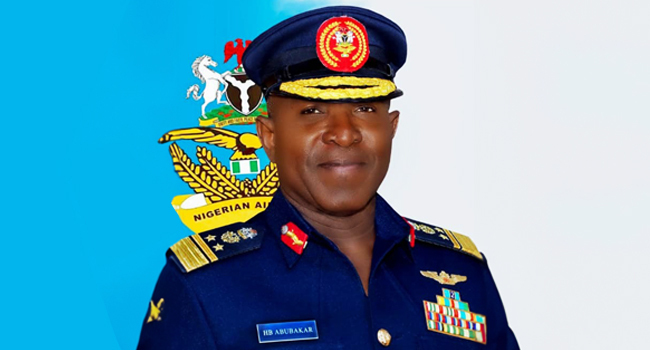Air Marshal Hasan Abubakar, the Chief of Air Staff of the Nigerian Air Force (NAF), has recently voiced his concerns regarding the excessive reliance on foreign countries for military aircraft and spare parts. At a gathering during the 2024 NAF Research and Development Retreat in Abuja, Abubakar emphasized the significant limitations this dependency creates, particularly in sustaining flight operations. Drawing on his own experiences, including his tenure as the Commander of the 101 Presidential Air Fleet, he shared insights into the operational challenges posed by this reliance on imported components. He remarked that transformative change could only occur through a concerted effort to develop indigenous capabilities, primarily focused on aircraft manufacturing and spare parts production supported by robust research and development (R&D) initiatives.
During his address, Abubakar highlighted the historical evolution of his views on the vital role of R&D in overcoming these operational hindrances. His previous position as Chief of Standards and Evaluation for the NAF had afforded him deeper appreciation for the necessity of investing in R&D as a means to curtail the challenges presented by dependency on foreign military imports. The Air Marshal called for strategic developments in local capabilities that would ultimately decrease reliance on outside sources, thereby enhancing the operational readiness and autonomy of the Nigerian Air Force as it strives to become self-sufficient in aircraft maintenance and production.
The Nigerian Air Force is actively working to bolster its capabilities, particularly in light of its plans to acquire 50 new aircraft between late 2024 and 2026. Abubakar confirmed that the NAF is rapidly establishing the necessary infrastructure and human resources to support the operation and maintenance of this anticipated fleet expansion. Recognizing the challenges posed by such growth, he reiterated that building indigenous capacity through homegrown manufacturing and maintenance capabilities is essential for future sustainability. Abubakar underscored the urgency of this undertaking, suggesting that by fortifying local expertise and resources, the NAF can significantly reduce its reliance on foreign entities for military aviation support.
In furtherance of local capacity development, the Nigerian Air Force has commenced several projects, including the construction of unmanned aerial vehicles (UAVs) and rocket launchers. Abubakar specifically noted the revival of the TSAIGUMI Unmanned Aerial Vehicle project, which is now progressing in partnership with UAVision of Portugal. This collaboration marks a critical step in establishing indigenous UAV capabilities that can enhance the NAF’s operational effectiveness and adaptability. In addition, the Air Force is engaging in a strategic partnership with Zenith Prom of Serbia, which aims to facilitate technology transfer for the production of 57mm rockets, thereby augmenting national defense capabilities.
Beyond hardware development, Abubakar announced that the NAF is expanding its institutional capacity for R&D through the elevation of the Air Force Research and Development Centre to the status of an Institute. This upgrade is intended to enhance the NAF’s capacity to conduct advanced research and improve access to research funding. By institutionalizing the R&D processes, the Nigerian Air Force is positioning itself to not only address current operational needs but also innovate for future challenges. The emphasis on creating strong research foundations is indicative of a broader understanding that sustaining military capability requires not just physical assets but also advancements in knowledge and technology.
In addition to hardware and institutional advancement, the Chief of Air Staff highlighted the importance of software development within the NAF, revealing the implementation of a bespoke digital correspondence application termed the “Paperless System” in May. This initiative is aimed at streamlining operations and enhancing communication efficacy within the organization. By integrating technological solutions, the NAF is taking a comprehensive approach to military modernization, recognizing that effective operational capabilities hinge not only on the material assets but also on efficient systems and processes. As the Nigerian Air Force embarks on this journey of self-reliance and innovation, the focus remains on fostering indigenous capabilities within the nation’s defense sphere, ensuring not only readiness for current demands but also resilience for future challenges.


